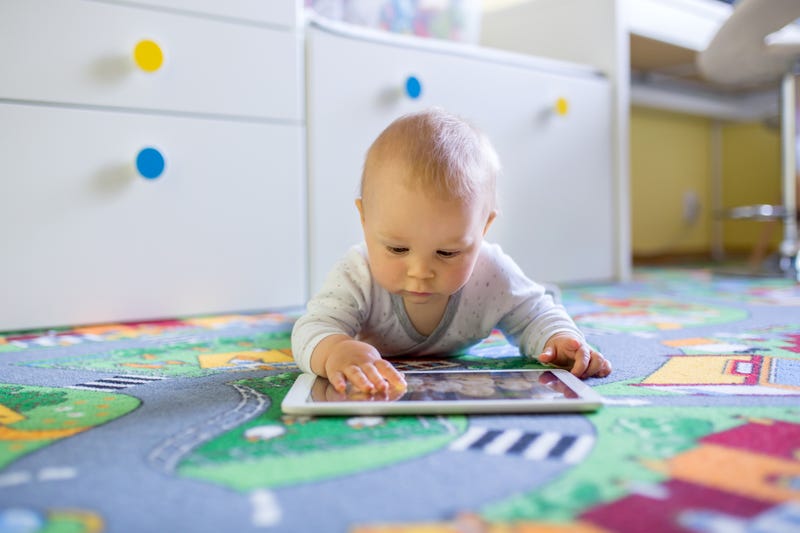
PHILADELPHIA (KYW Newsradio) — TVs, tablets, phones, computers… kids have easy access to all of it, but what kind of impact does it have on them in the long run?
A study conducted by Drexel University researchers, released in the journal JAMA Pediatrics, found that exposing children — specifically, kids under age 2 — to screens is associated with sensory processing problems that can range from seeking more stimulation to being overwhelmed by sights and sounds.
The Drexel team found that babies younger than age 1 who were exposed to any screen time were twice as likely to show atypical sensory behavior before their third birthday.
And, associate psychiatry professor Karen Heffler said they were less sensitive to outside stimuli.
“They tended to avoid eye contact. They had poor or slow responses to hearing their name called or familiar voices,” she said.
The study found that screen time before 24 months also increased the risk of sensory-seeking, sensory-avoiding, or sensory sensitivity. Behaviors include licking or smelling objects more than normal, running away from noisy environments, or being easily startled by cold or rough surfaces.
“This study adds atypical sensory processing to previous findings such as ADHD, autism, delays in language, as well as sleep problems that have been associated with early screen time,” Heffler said.
The American Academy of Pediatrics recommends no screens for babies under age 2 and limited time for children under age 5. The exception, they say, is interactive video chats.
Some parents questioned in a 2015 study cited “exhaustion” and an inability to afford alternative forms of entertainment as reasons for letting their kids have screen time.
